The term French New Wave was coined by the popular French film magazine, Cahiers du Cinema, and it’s now used to describe the films of directors such as Jean-Luc Godard and François Truffaut.
The movies are known for their innovative filming techniques and a strong focus on the characters’ psychology.
They often show everyday life in France during the 1950s and 1960s.
FRENCH NEW WAVE FILMS
What Is French New Wave?
French New Wave is a movement in film that started in the late 50s and lasted through the 60s. It was marked by spontaneity, experimentation, and an anti-studio attitude.
The term “New Wave” was coined by French critic Michel Cournot to describe this new form of filmmaking that seemed to break traditional rules of cinema.
Some French New Wave movies include Breathless, Jules et Jim, and La Chinoise.
These three movies were released between 1959 to 1967 but were all filmed in France.
All three explore themes such as love or existentialism through unique perspectives that have been recognized internationally since then as hallmarks of this movement’s filmmaking style.
The movement is known for its use of jump cuts, hand-held camera shots, natural lighting, and improvisation.
What Is The French New Wave Movement?
The French New Wave is a movement in cinema that started with the release of François Truffaut’s “The 400 Blows” in 1959.
The style was characterized by making films about youth and middle-class life, and not privileging dialogue over visual effects.
In today’s world, this new wave has been influential on many filmmakers around the world who are exploring new ways to tell stories on film.
It is also often considered to have begun with “Les Quatre Cent Coups” (1959).
The goal of this movement was to create a new type of cinema, one that would be more relevant and reflective of how people actually live their lives.
These films were usually shot very quickly on location and without many crew members so they could be made for cheaper than traditional Hollywood films.
The most popular director during this time period was Jean-Luc Godard who is credited as being the father of the French New Wave.
His works are known for their quick cuts, hand-held cameras, jumpy editing style, natural lighting, and improvised dialogue.
The films themselves were unconventional too – they often had fragmented plots and scenes shot out of sequence so that editing could be used to bring coherence to them.
If you’re interested in learning more about the French New Wave film movement, check out our in-depth profile and explore our comprehensive timeline of film movements to see where it fits in cinema history.
The main principle of this style is to create films with a more personal feel through techniques such as hand-held cameras, jump cuts, and natural lighting.
Best French New Wave Movies
French New Wave filmmakers were inspired by Italian Neorealism and Swedish film director Ingmar Bergman’s films from the 1950s.
They also incorporated aspects of Japanese movie-making into their work as well as elements from American avant-garde cinema.
These films often focus on existentialist themes such as loneliness, despair, boredom, alienation, etc., with many featuring an alienated protagonist who pursues isolation or withdraws within him/herself to cope with society’s shortcomings.
This guide will cover some of these directors including:
- François Truffaut,
- Jean Luc Godard,
- Jacques Rivette,
- Claude Chabrol,
- Eric Rohmer and
- Agnes Varda.
Read on to learn more about this influential group of filmmakers!
Best French New Wave Films
The style was reflective of an anti-bourgeois sentiment among youth at the time but also drew from many American films at the time such as Orson Welles’ Citizen Kane or Howard Hawks’s Red River.
French New Wave films of the 1960s are often hailed as some of the most influential and ground-breaking pieces of cinema ever made.
These revolutionary films were shot in a new, innovative style that is still being copied today.
This blog post will give you a list of movies from this era that are worth viewing for any cinephile.
Breathless (A bout de souffle) (1960)
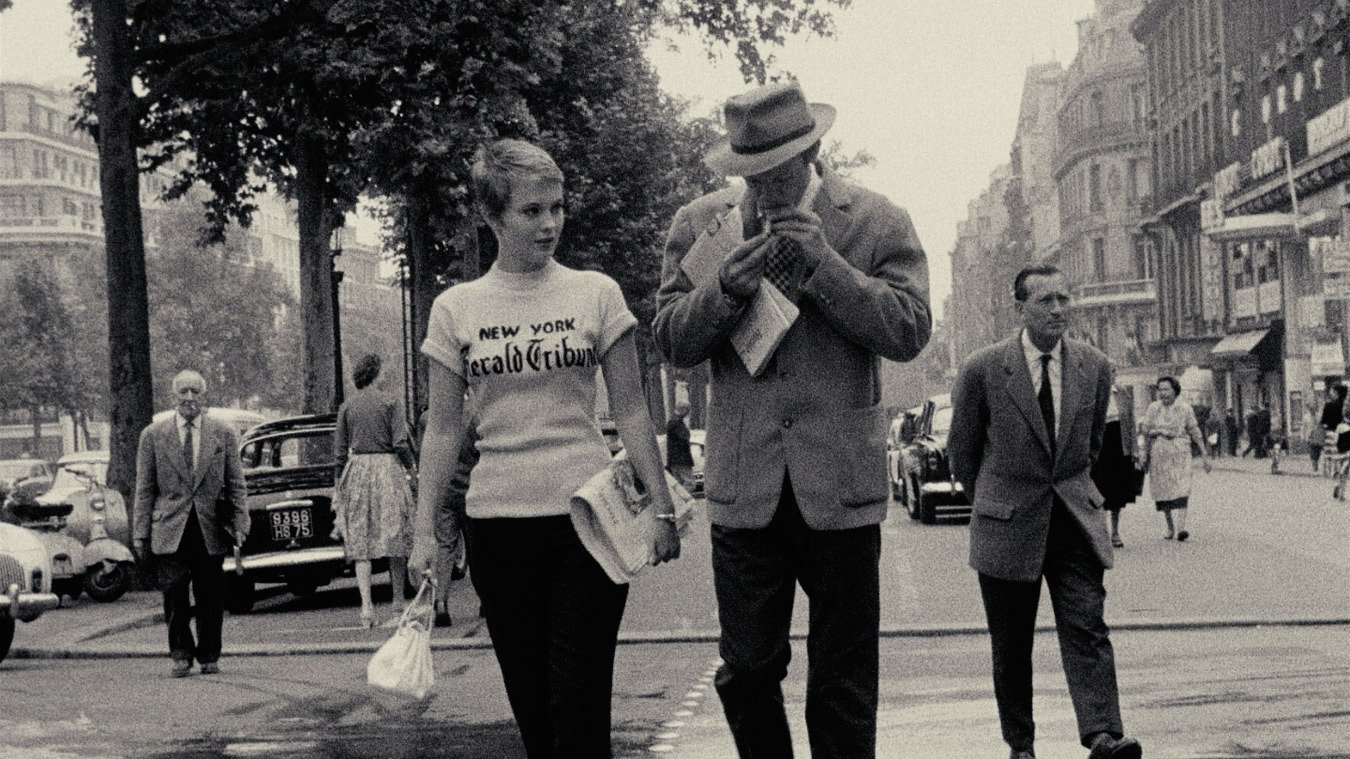
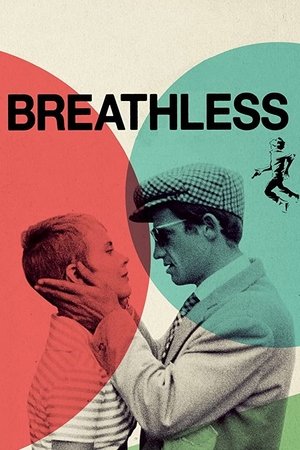
Breathless
Wild! Violent! Outspoken and Honest!
1960 • 1h 30min • ★ 7.521/10 • France
Directed by: Jean-Luc Godard
Cast: Jean-Paul Belmondo, Jean Seberg, Daniel Boulanger, Henri-Jacques Huet, Roger Hanin
A small-time thief steals a car and impulsively murders a motorcycle policeman. Wanted by the authorities, he attempts to persuade a girl to run away to Italy with him.
Breathless (A bout de souffle) is a masterpiece of French New Wave cinema.
Directed by Jean-Luc Godard, the film is a stylish and unconventional crime drama that follows the story of Michel, a small-time criminal who steals a car and kills a policeman, and his relationship with the American student Patricia.
The film is shot in a unique and innovative style, with handheld cameras, jump cuts, and a non-linear narrative.
The performances by Jean-Paul Belmondo and Jean Seberg are outstanding, capturing the essence of their characters in a way that is both natural and captivating.
Breathless is a film that challenges the traditional conventions of storytelling and narrative structure, creating a fresh and exciting viewing experience.
It is a true masterpiece of cinema that has influenced countless filmmakers and continues to captivate audiences today.
Breathless is a must-see for any cinephile or lover of great cinema. It is a film that will leave you ‘breathless’ and in awe of the power of the art form.
- Shrink-wrapped
- Jean-Paul Belmondo, Jean Seberg (Actors)
- Jean-Luc Godard (Director)
- English (Subtitle)
- Audience Rating: NR (Not Rated)
Jules et Jim (1962)
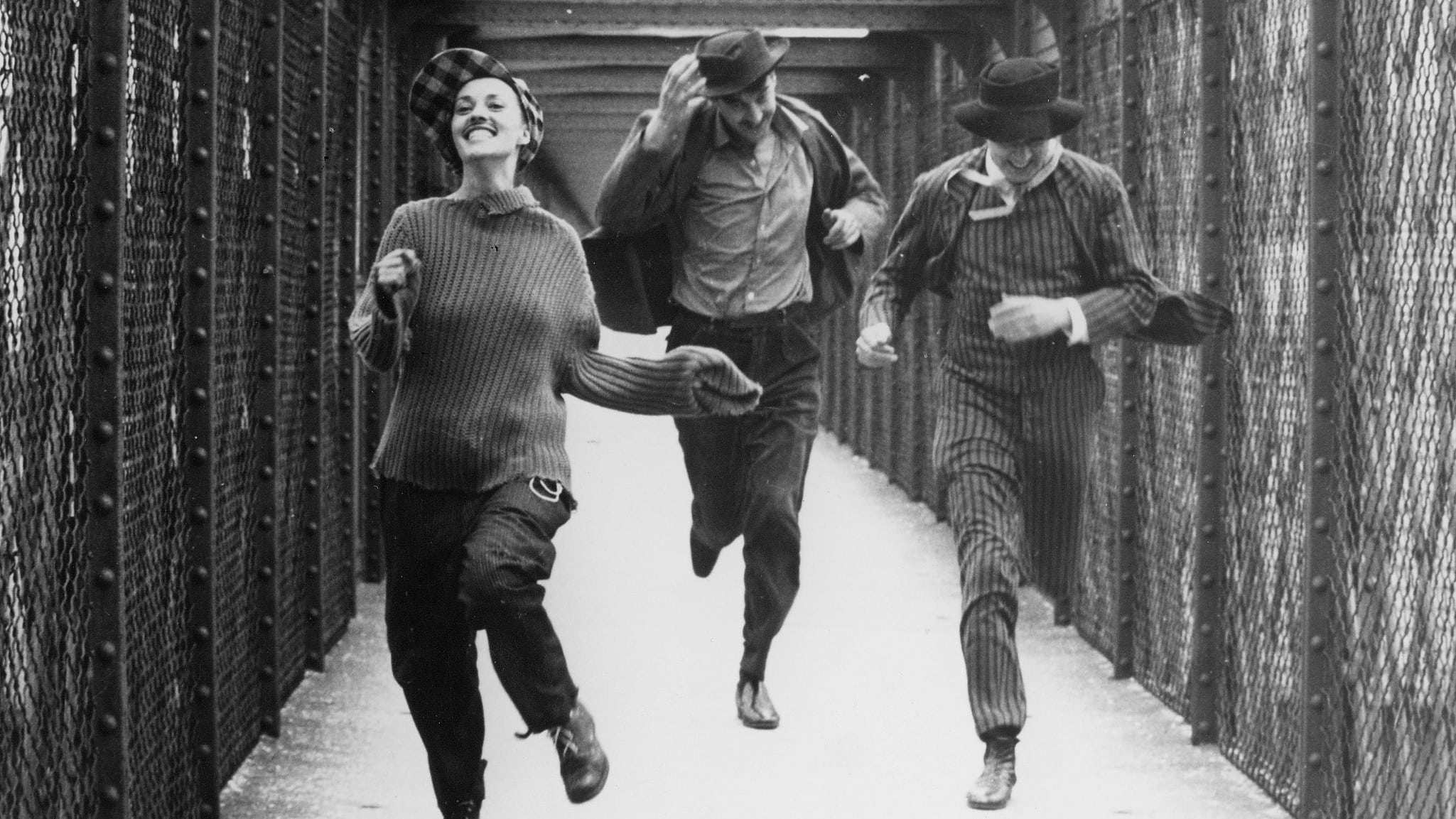
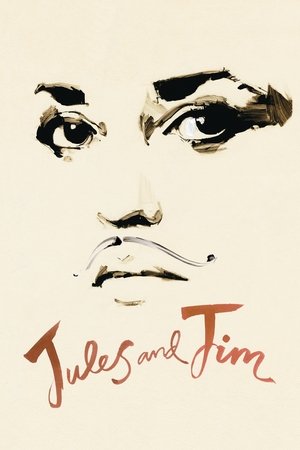
Jules and Jim
A Hymn to Life and Love
1962 • 1h 46min • ★ 7.565/10 • France
Directed by: François Truffaut
Cast: Henri Serre, Oskar Werner, Jeanne Moreau, Marie Dubois, Sabine Haudepin
In the carefree days before World War I, introverted Austrian author Jules strikes up a friendship with the exuberant Frenchman Jim and both men fall for the impulsive and beautiful Catherine.
Jules et Jim is a timeless masterpiece that explores the complexities of love and friendship in a way that feels both fresh and timeless.
Director François Truffaut’s vision is captured beautifully on screen, with stunning cinematography and a moving musical score.
The film follows Jules and Jim, two friends who fall in love with the same woman, Catherine.
What unfolds is a captivating and emotional journey that explores the depths of human emotion, as Jules and Jim navigate their love for Catherine and their love for each other.
The performances in Jules et Jim are nothing short of exceptional, with Jeanne Moreau delivering a standout performance as Catherine.
Her portrayal of a woman torn between two men is both heartbreaking and mesmerizing, and she brings a depth and complexity to the character that is truly unforgettable.
The film’s themes of love, desire, and the complexities of relationships are explored with a nuance and sensitivity that is rare in cinema.
Truffaut’s direction is masterful, and his ability to capture the emotions of his characters is truly remarkable.
Jules et Jim is a stunning film that is both beautiful and heartbreaking. It is a true masterpiece that will leave you thinking about it long after the credits roll.
If you haven’t seen it yet, do yourself a favor and add it to your watchlist immediately.
https://www.youtube.com/watch?v=x5IAYIUKTaI
- Jules And Jim (Criterion Collection) - Blu-ray/ DVD Used Like New
- Jeanne Moreau, Oskar Werner, Henri Serre (Actors)
- François Truffaut (Director) - François Truffaut (Writer)
- English (Subtitle)
- English (Publication Language)
Pierrot le fou (1965)
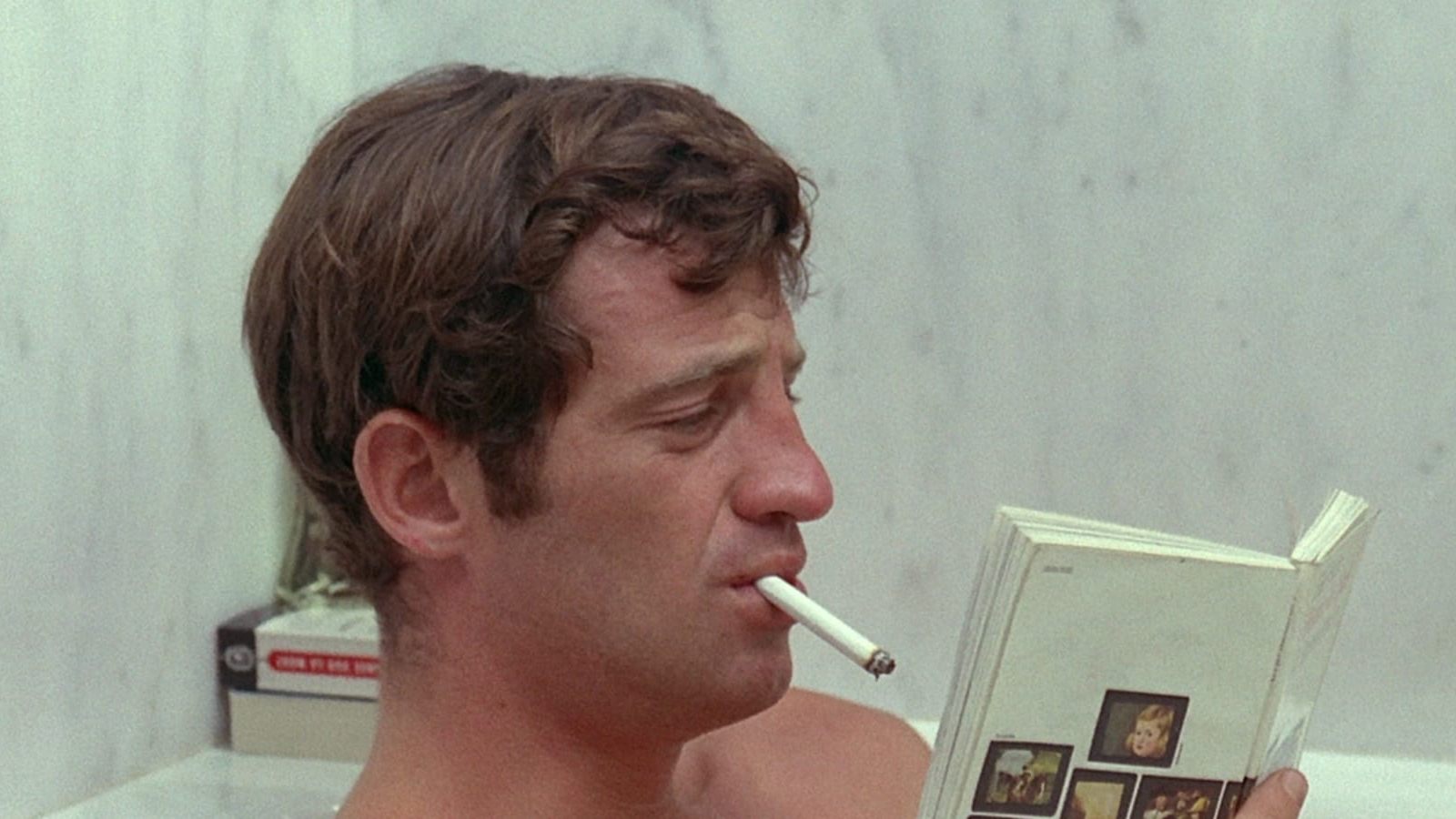
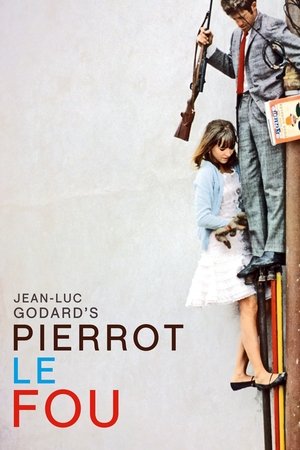
Pierrot le Fou
You've met the tame Godard, the love Godard, the think Godard, ...now meet the wild Godard!
1965 • 1h 50min • ★ 7.4/10 • France
Directed by: Jean-Luc Godard
Cast: Jean-Paul Belmondo, Anna Karina, Graziella Galvani, Aicha Abadir, Henri Attal
Pierrot escapes his boring society and travels from Paris to the Mediterranean Sea with Marianne, a girl chased by hit-men from Algeria. They lead an unorthodox life, always on the run.
Pierrot le fou is a cinematic masterpiece that defies categorization.
This film is a surreal journey through the mind of a man named Ferdinand (played brilliantly by Jean-Paul Belmondo) who abandons his bourgeois life to run off with an old flame named Marianne (played by the stunning Anna Karina).
The film is a bold exploration of love, violence, and the human psyche, with its vivid colors, experimental editing techniques, and unconventional narrative structure.
Belmondo’s portrayal of Ferdinand is both charming and unsettling, as he descends deeper into madness and violence throughout the film.
Godard’s use of music is also worth noting, as he incorporates a wide range of genres and styles to create a unique and unforgettable soundscape that complements the film’s visuals perfectly.
In short, Pierrot le fou is a must-see for anyone who loves cinema, as it represents the pinnacle of the French New Wave movement and remains a timeless classic to this day.
- Graziella Galvani, Dirk Sanders, Raymond Devos (Actors)
- Jean-Luc Godard (Director) - Georges de Beauregard (Producer)
- English (Subtitle)
- Audience Rating: NR (Not Rated)
Le mépris (1963)
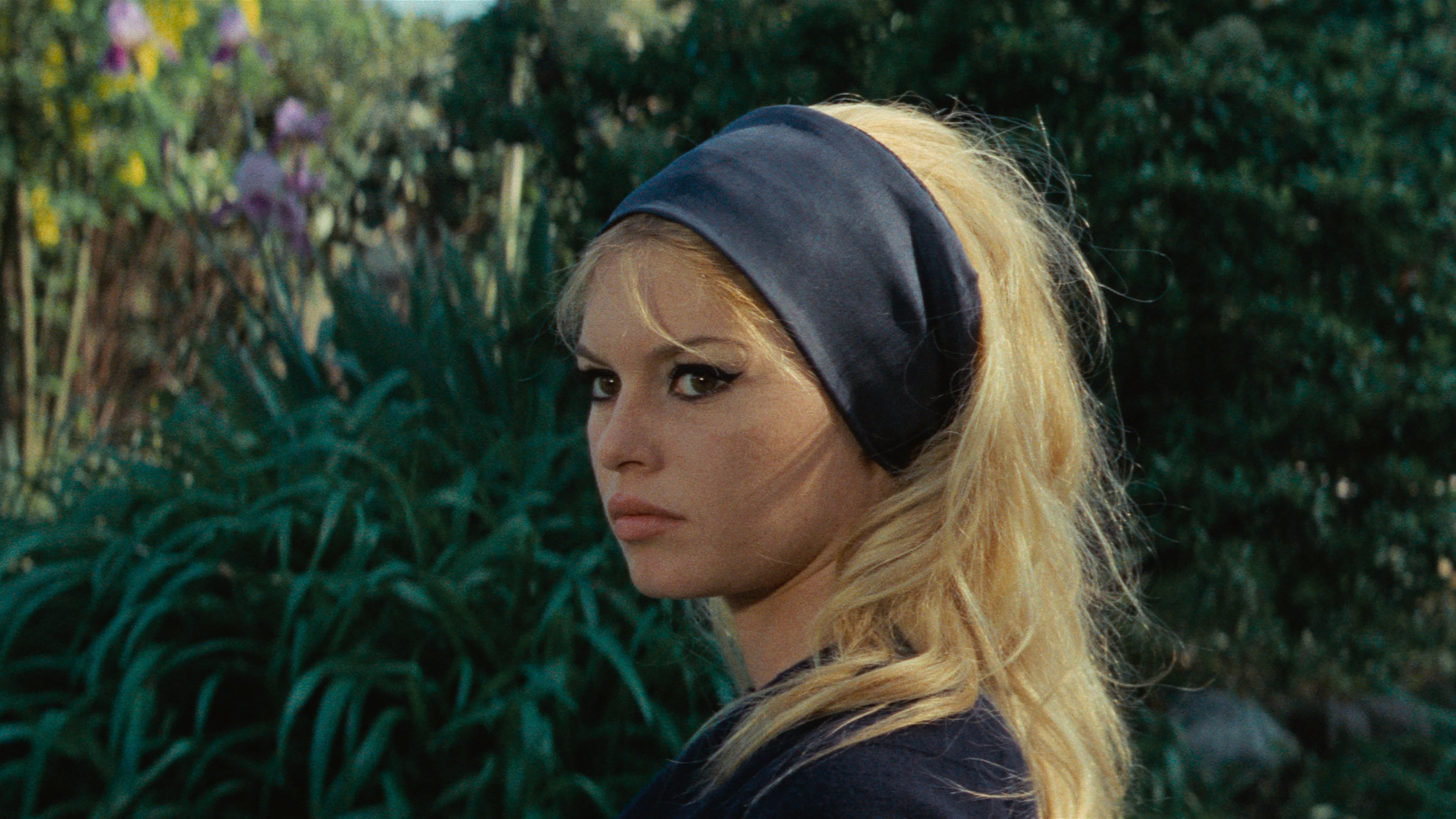
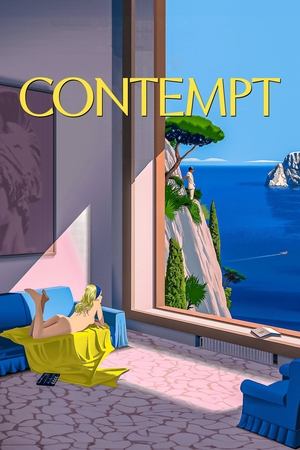
Contempt
More bold! More brazen! And much, much more Bardot!
1963 • 1h 43min • ★ 7.085/10 • France
Directed by: Jean-Luc Godard
Cast: Brigitte Bardot, Michel Piccoli, Jack Palance, Giorgia Moll, Fritz Lang
A philistine in the art film business, Jeremy Prokosch is a producer unhappy with the work of his director. Prokosch has hired Fritz Lang to direct an adaptation of "The Odyssey," but when it seems that the legendary filmmaker is making a picture destined to bomb at the box office, he brings in a screenwriter to energize the script. The professional intersects with the personal when a rift develops between the writer and his wife.
Le mépris is a hypnotically beautiful film that explores the disintegration of a relationship against the backdrop of the film industry.
The movie is a visual feast, with stunning cinematography that captures the Mediterranean landscapes and the breathtaking architecture of Rome.
The score by legendary composer Georges Delerue is equally mesmerizing, adding a layer of melancholy to the already bittersweet story.
The film’s central theme is the struggle between art and commerce, with the protagonist, played by Michel Piccoli, torn between his artistic integrity and the demands of his producer, played by Jack Palance.
Brigitte Bardot delivers a standout performance as Piccoli’s wife, whose love for her husband is slowly eroded by his growing disillusionment with the film industry.
Le mépris is a slow-paced movie, but it is never dull. Godard’s masterful direction keeps the audience engaged as the story unfolds, and the film’s themes are explored with subtlety and nuance.
The movie is a meditation on the nature of relationships, and the way that money and power can corrupt even the purest of intentions.
Le mépris is a stunning masterpiece that will leave you thinking long after the credits roll. If you’re a fan of classic cinema, this is a must-see film that showcases the best of what the medium has to offer.
- Brigitte Bardot, Michel Piccoli, Jack Palance (Actors)
- Jean-Luc Godard (Director)
- Spanish (Subtitle)
- English (Publication Language)
- Audience Rating: NR (Not Rated)
Hiroshima, mon amour (1959)
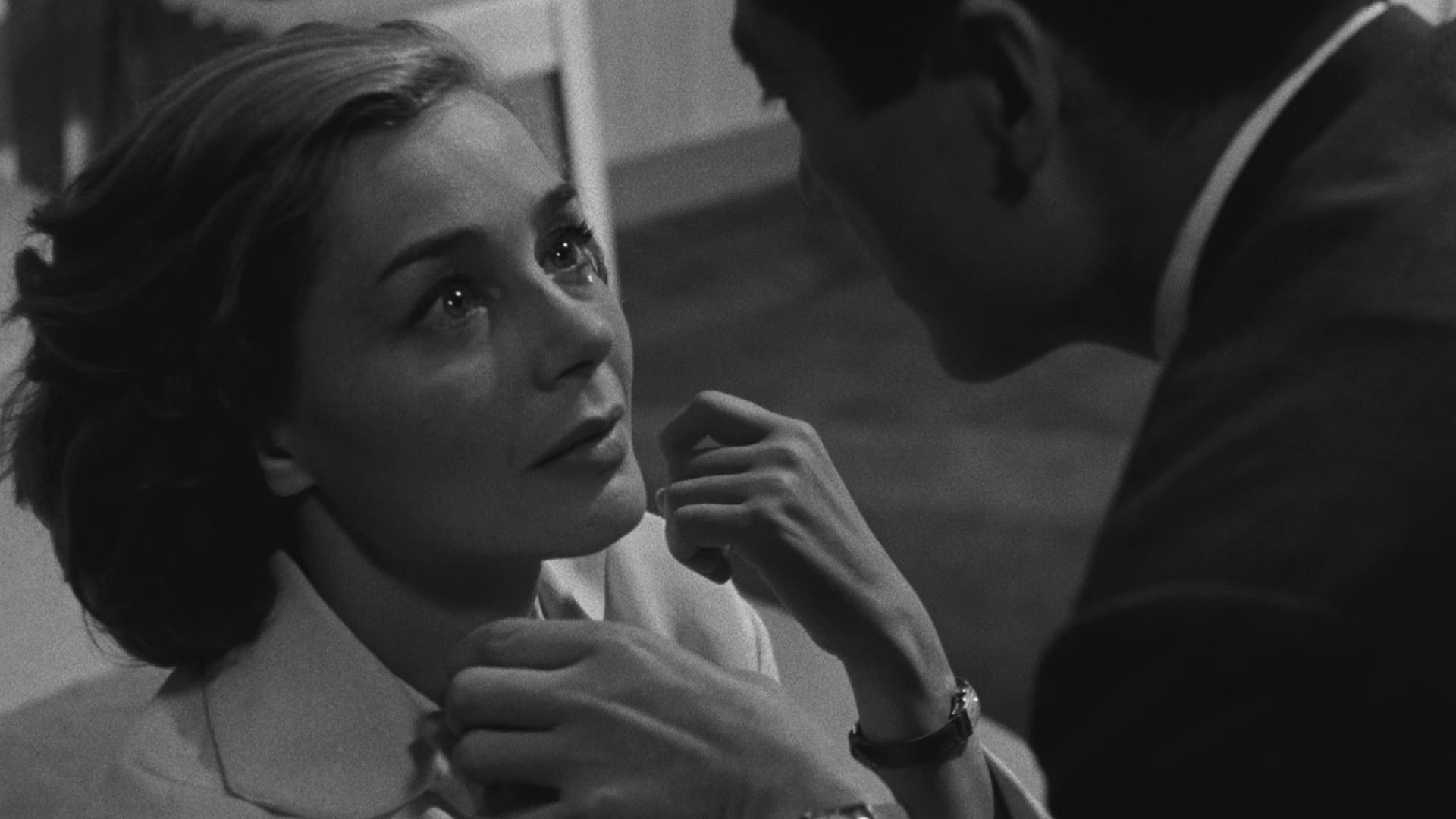
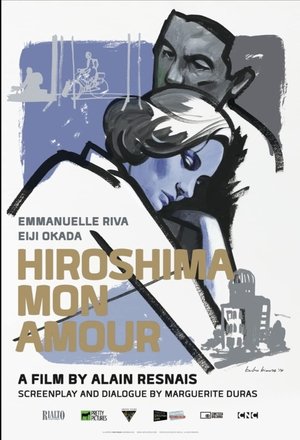
Hiroshima Mon Amour
From the measureless depths of a woman's emotions...
1959 • 1h 32min • ★ 7.693/10 • France
Directed by: Alain Resnais
Cast: Emmanuelle Riva, Eiji Okada, Stella Dassas, Pierre Barbaud, Bernard Fresson
The deep conversation between a Japanese architect and a French actress forms the basis of this celebrated French film, considered one of the vanguard productions of the French New Wave. Set in Hiroshima after the end of World War II, the couple -- lovers turned friends -- recount, over many hours, previous romances and life experiences. The two intertwine their stories about the past with pondering the devastation wrought by the atomic bomb dropped on the city.
Hiroshima, mon amour is a hauntingly beautiful film that tells the story of a French actress and a Japanese architect who fall in love in Hiroshima, just ten years after the city was destroyed by an atomic bomb.
Directed by Alain Resnais, the film is a masterpiece of French New Wave cinema that explores themes of memory, trauma, and identity.
The film is visually stunning, with Resnais using a mix of documentary footage and dramatic reenactments to create a sense of the brutal reality of the bombing.
The black and white cinematography is both stark and elegant, with Resnais using light and shadow to great effect.
The performances of the two lead actors, Emmanuelle Riva and Eiji Okada, are outstanding. Riva’s portrayal of the French actress, haunted by memories of her wartime experiences in France, is both haunting and nuanced.
Okada brings a quiet intensity to his role as the Japanese architect, struggling to come to terms with his own experiences of the bombing.
The film’s screenplay, written by Marguerite Duras, is poetic and thought-provoking. It explores complex themes of love, loss, and memory, and raises important questions about the nature of human relationships and the impact of war on individuals and society.
Hiroshima, mon amour is a powerful and deeply moving film that has stood the test of time.
It’s a must-see for anyone interested in the history of cinema, and for anyone who wants to explore the complexities of human experience.
- Shrink-wrapped
- Emmanuelle Riva, Eiji Okada (Actors)
- Alain Resnais (Director)
- English (Subtitle)
- English (Publication Language)
Cléo de 5 à 7 (1962)
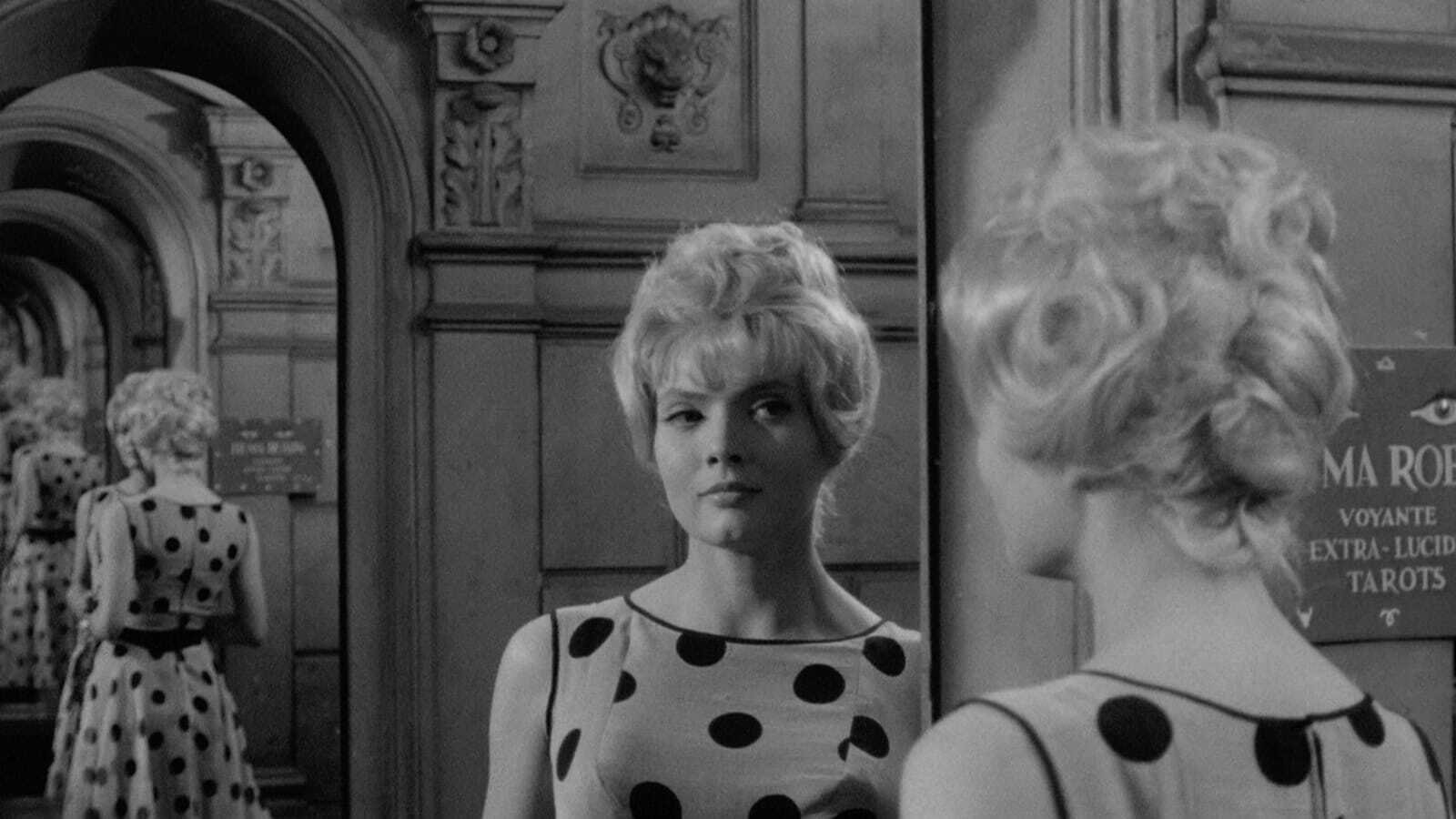

Cléo from 5 to 7
The whole world... has made an appointment with...
1962 • 1h 30min • ★ 7.682/10 • France
Directed by: Agnès Varda
Cast: Corinne Marchand, Antoine Bourseiller, Dominique Davray, Dorothée Blanck, Michel Legrand
Agnès Varda eloquently captures Paris in the sixties with this real-time portrait of a singer set adrift in the city as she awaits test results of a biopsy. A chronicle of the minutes of one woman’s life, Cléo from 5 to 7 is a spirited mix of vivid vérité and melodrama, featuring a score by Michel Legrand and cameos by Jean-Luc Godard and Anna Karina.
Cléo de 5 à 7 is a French New Wave classic that follows singer Cléo as she awaits the results of a medical test.
Agnès Varda masterfully captures the essence of Paris in the 60s, creating a vibrant and atmospheric cityscape that serves as the backdrop for Cléo’s journey of self-discovery.
The film’s use of real-time adds a sense of urgency and tension to the narrative, as we watch Cléo grapple with her mortality and search for meaning in her life.
Actress Corinne Marchand delivers a stunning performance as Cléo, bringing depth and vulnerability to a character who could easily have been one-dimensional.
What sets Cléo de 5 à 7 apart from other films of its era is its feminist undertones. Varda subverts the male gaze by portraying Cléo as a complex and multi-dimensional woman, rather than a mere object of desire.
The film also explores the ways in which women are objectified and commodified in society, particularly within the entertainment industry.
Cléo de 5 à 7 is a masterful piece of filmmaking that stands the test of time. Its themes of mortality, existentialism, and feminism are just as relevant today as they were in 1962.
Highly recommended for fans of French New Wave cinema and anyone interested in exploring the complexities of the human experience.
- Corinne Marchand, Antoine Bourseiller, Dominique Davray (Actors)
- Agns Varda (Director) - Agns Varda (Writer)
- English (Subtitle)
- Audience Rating: Unrated (Not Rated)
La Collectionneuse (1967)
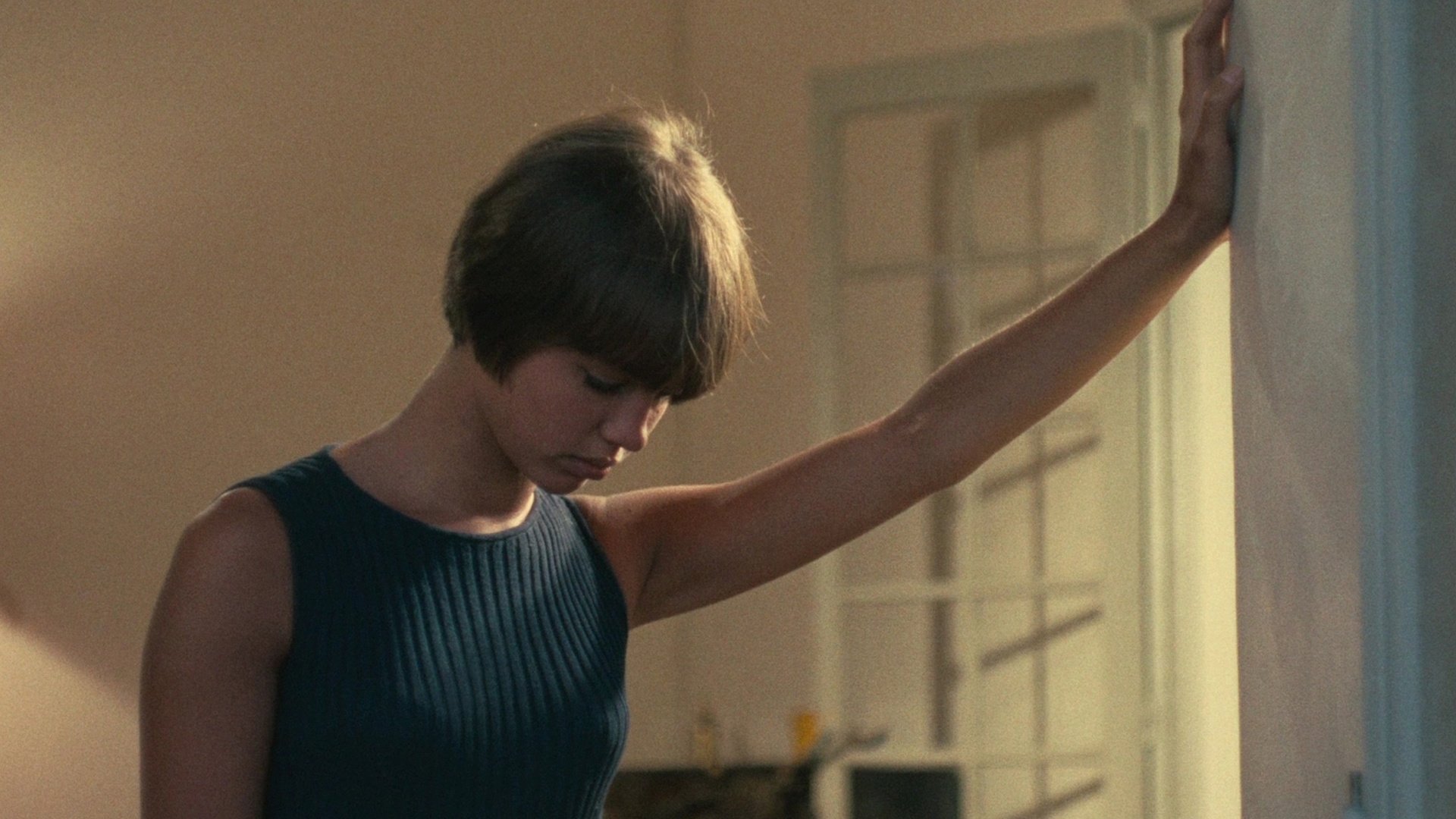
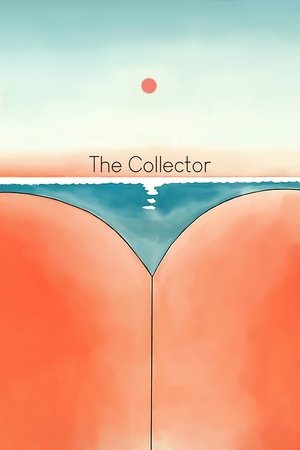
La Collectionneuse
1967 • 1h 26min • ★ 6.9/10 • France
Directed by: Éric Rohmer
Cast: Patrick Bauchau, Haydée Politoff, Daniel Pommereulle, Alain Jouffroy, Mijanou Bardot
A bombastic, womanizing art dealer and his painter friend go to a seventeenth-century villa on the Riviera for a relaxing summer getaway. But their idyll is disturbed by the presence of the bohemian Haydée, accused of being a “collector” of men.
La Collectionneuse is a mesmerizing film that explores complexities of human relationships through the lens of a summer vacation in the French Riviera.
Directed by Eric Rohmer, the film follows the story of Adrien, a young art dealer who spends his vacation in a villa with his Daniel and a beautiful, free-spirited woman named Haydée.
The film is a visual treat with stunning shots of the Riviera and its scenic beauty. The characters are well-defined, and the performances are top-notch. Haydée is the standout character, and her portrayal is both captivating and intriguing.
The film’s real strength lies in its exploration of human behavior, particularly the concept of desire and the dynamics of romantic relationships.
The tension between the characters is palpable, and the film does an excellent job of building up to its climax.
La Collectionneuse is a thought-provoking film that will stay with you long after the credits roll.
- Rohmer Eric (Author)
- French (Publication Language)
La réligieuse (1966)
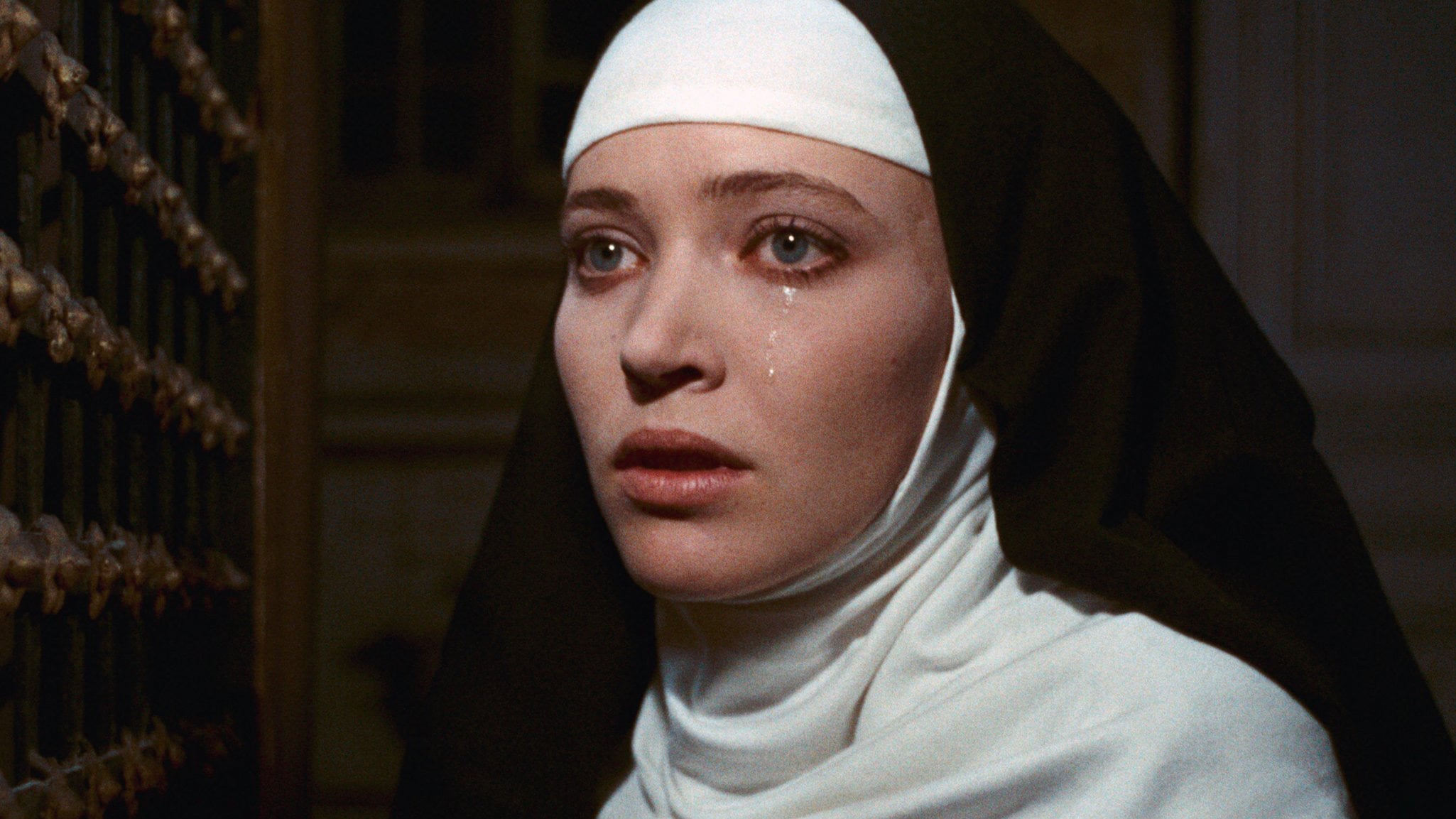
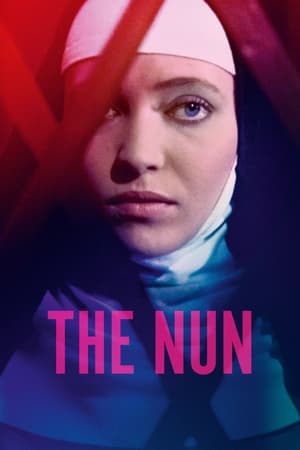
The Nun
The banned film by Jacques Rivette
1967 • 2h 20min • ★ 7.1/10 • France
Directed by: Jacques Rivette
Cast: Anna Karina, Liselotte Pulver, Micheline Presle, Francine Bergé, Francisco Rabal
In eighteenth-century France, a girl is forced against her will to take vows as a nun. Three mothers superior treat her in radically different ways, ranging from maternal concern, to sadistic persecution, to lesbian desire.
La Religieuse is a gripping and thought-provoking film that explores the themes of religious oppression and rebellion.
Directed by Jacques Rivette and based on the novel by Denis Diderot, this French-language film takes the viewer on a journey through the life of a young woman named Suzanne who is forced into a convent against her will.
The film’s cinematography is stunning, with gorgeous shots of the French countryside and intricate details of the convent’s interior.
The performances are also superb, with Anna Karina giving a standout portrayal of Suzanne, a woman struggling to find her place in a world that doesn’t understand her.
The film’s exploration of the power dynamics within the convent is both haunting and disturbing, as Suzanne is subjected to cruel and abusive treatment at the hands of her fellow nuns.
Yet, the film also highlights the resilience and strength of the human spirit, as Suzanne fights back against her oppressors and refuses to be silenced.
La Religieuse is a powerful and thought-provoking film that explores important themes and raises important questions about the nature of power, oppression, and rebellion.
- Shrink-wrapped
- Jacques Rivette (Director)
- Audience Rating: NR (Not Rated)
Les bonnes femmes (1960)
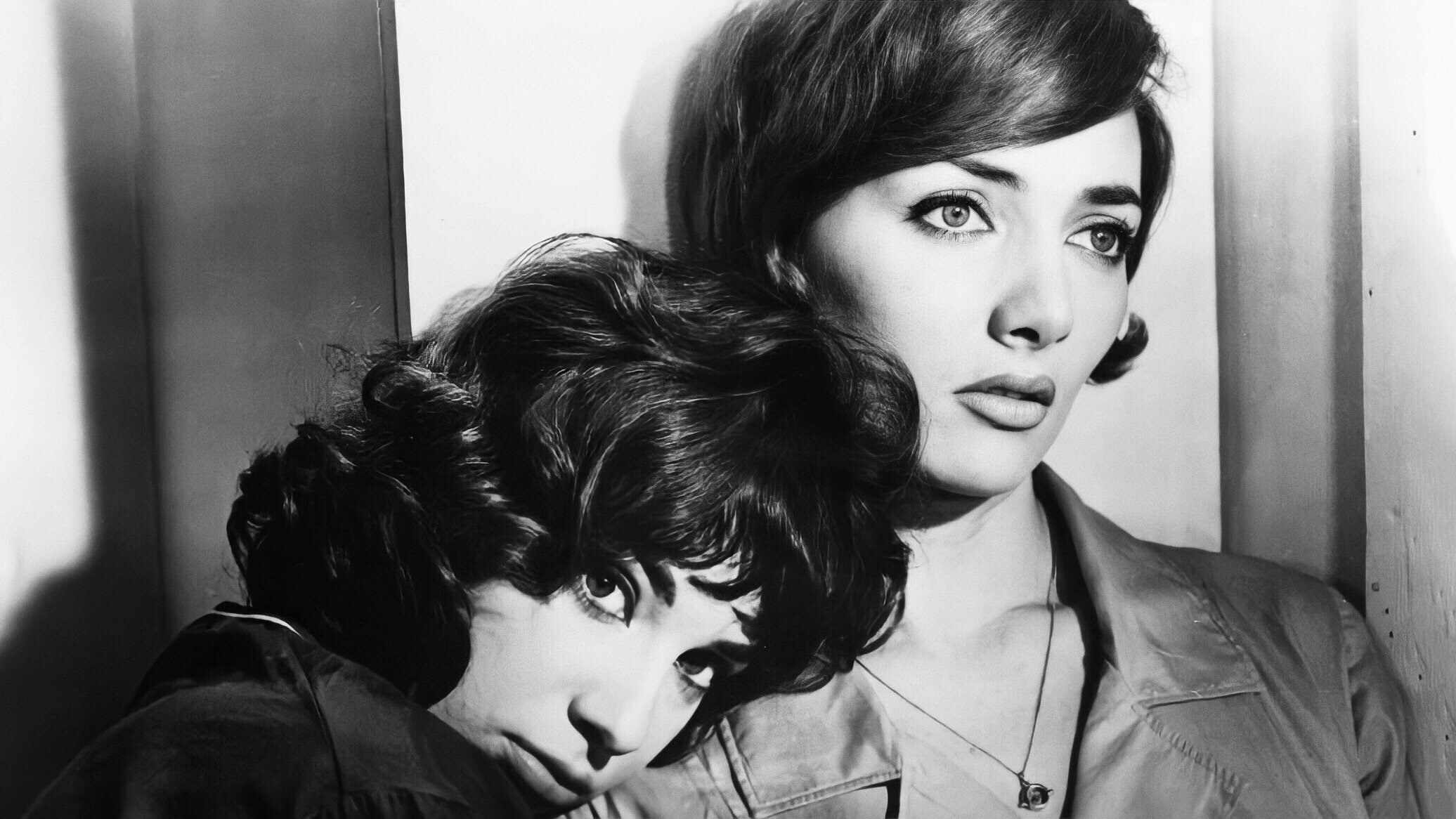
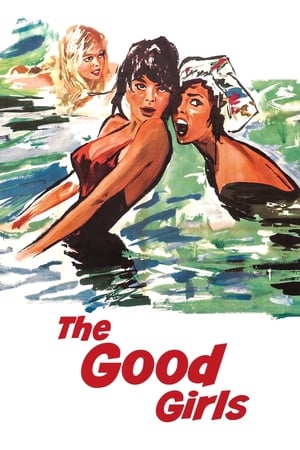
The Good Girls
1960 • 1h 40min • ★ 6.3/10 • France
Directed by: Claude Chabrol
Cast: Bernadette Lafont, Clotilde Joano, Stéphane Audran, Lucile Saint-Simon, Pierre Bertin
Four Parisian women navigate the world of romance and daily life looking to fulfill their dreams.
“Les bonnes femmes” is a
The performances from the cast are outstanding, particularly the lead actress Bernadette Lafont, who brings a raw and vulnerable energy to her role as the conflicted and restless Ginette. The film’s themes of alienation and loneliness are explored with a delicate touch, as Chabrol weaves together a complex tapestry of emotions and experiences.
“Les bonnes femmes” is a haunting and unforgettable film, one that lingers in the mind long after the credits have rolled. Chabrol’s vision of Paris is both beautiful and bleak, a city filled with contradictions and hidden depths. For fans of French New Wave cinema or those looking for a thought-provoking and engaging film, “Les bonnes femmes” is an absolute must-see.
- Amazon Prime Video (Video on Demand)
- Stephane Audran, Bernadette Lafont, Claude Berri (Actors)
- Claude Chabrol (Director) - Paul Gégauff (Writer) - Raymond Hakim (Producer)
- (Playback Language)
Le bonheur (1965)
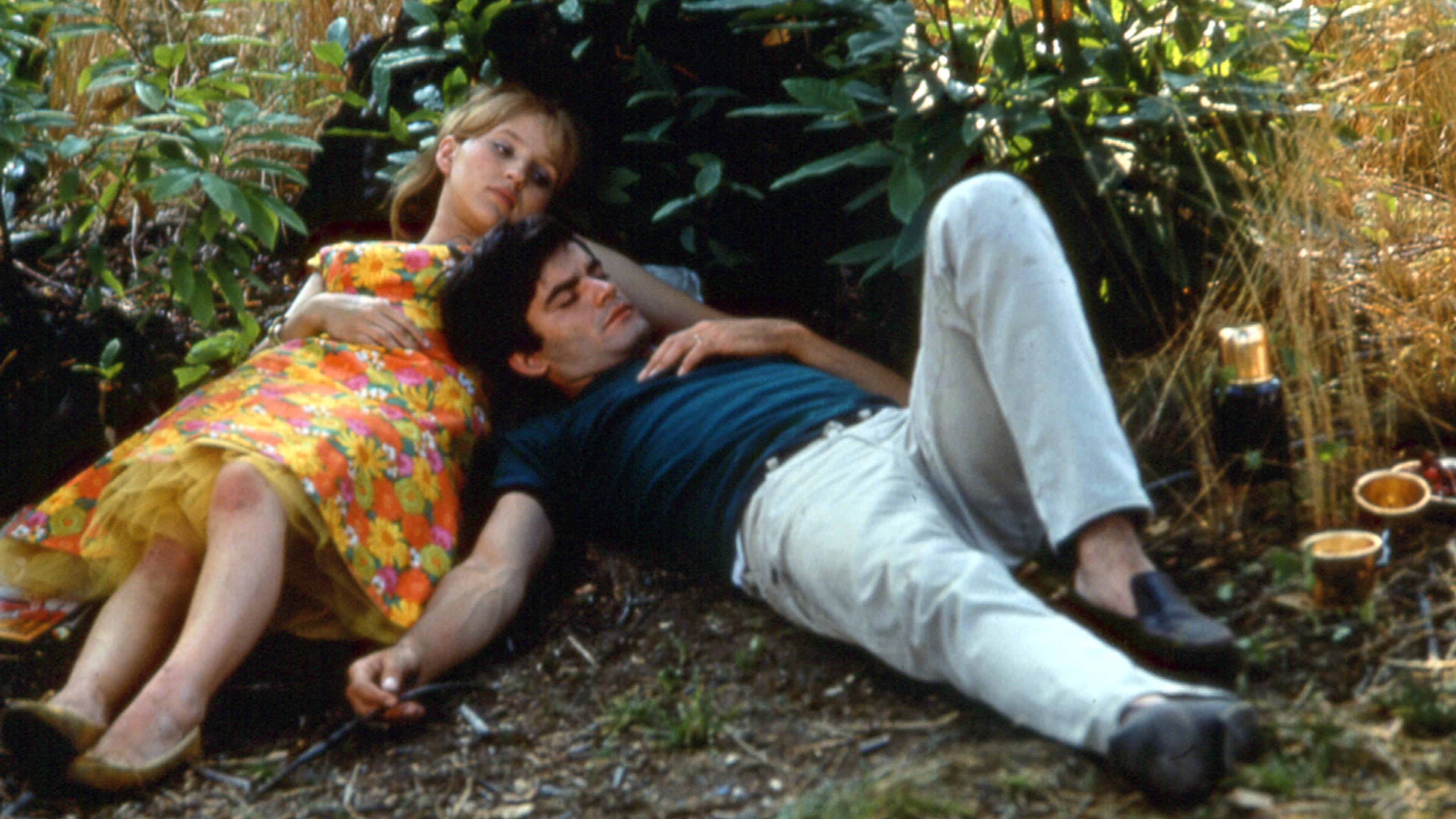
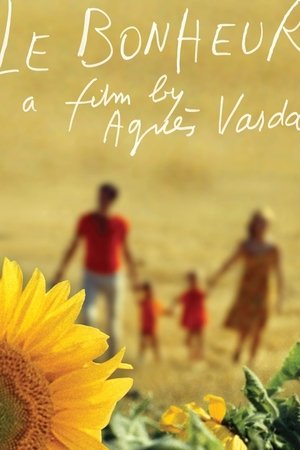
Happiness
Only a woman could dare to make this film.
1965 • 1h 20min • ★ 7.5/10 • France
Directed by: Agnès Varda
Cast: Jean-Claude Drouot, Claire Drouot, Olivier Drouot, Sandrine Drouot, Marie-France Boyer
A young husband and father, perfectly content with his life, falls in love with another woman.
“Les bonnes femmes” is a
The film follows four young women working in a Parisian appliance store, all yearning for something more in their mundane lives.
Chabrol’s direction is stylish and gritty, capturing the essence of post-war France with a keen eye for detail.
The performances from the cast are outstanding, particularly the lead actress Bernadette Lafont, who brings a raw and vulnerable energy to her role as the conflicted and restless Ginette.
The film’s themes of alienation and loneliness are explored with a delicate touch, as Chabrol weaves together a complex tapestry of emotions and experiences.
“Les bonnes femmes” is a haunting and unforgettable film, one that lingers in the mind long after the credits have rolled. Chabrol’s vision of Paris is both beautiful and bleak, a city filled with contradictions and hidden depths.
For fans of French New Wave cinema or those looking for a thought-provoking and engaging film, “Les bonnes femmes” is an absolute must-see.
Ma nuit chez Maud (1969)
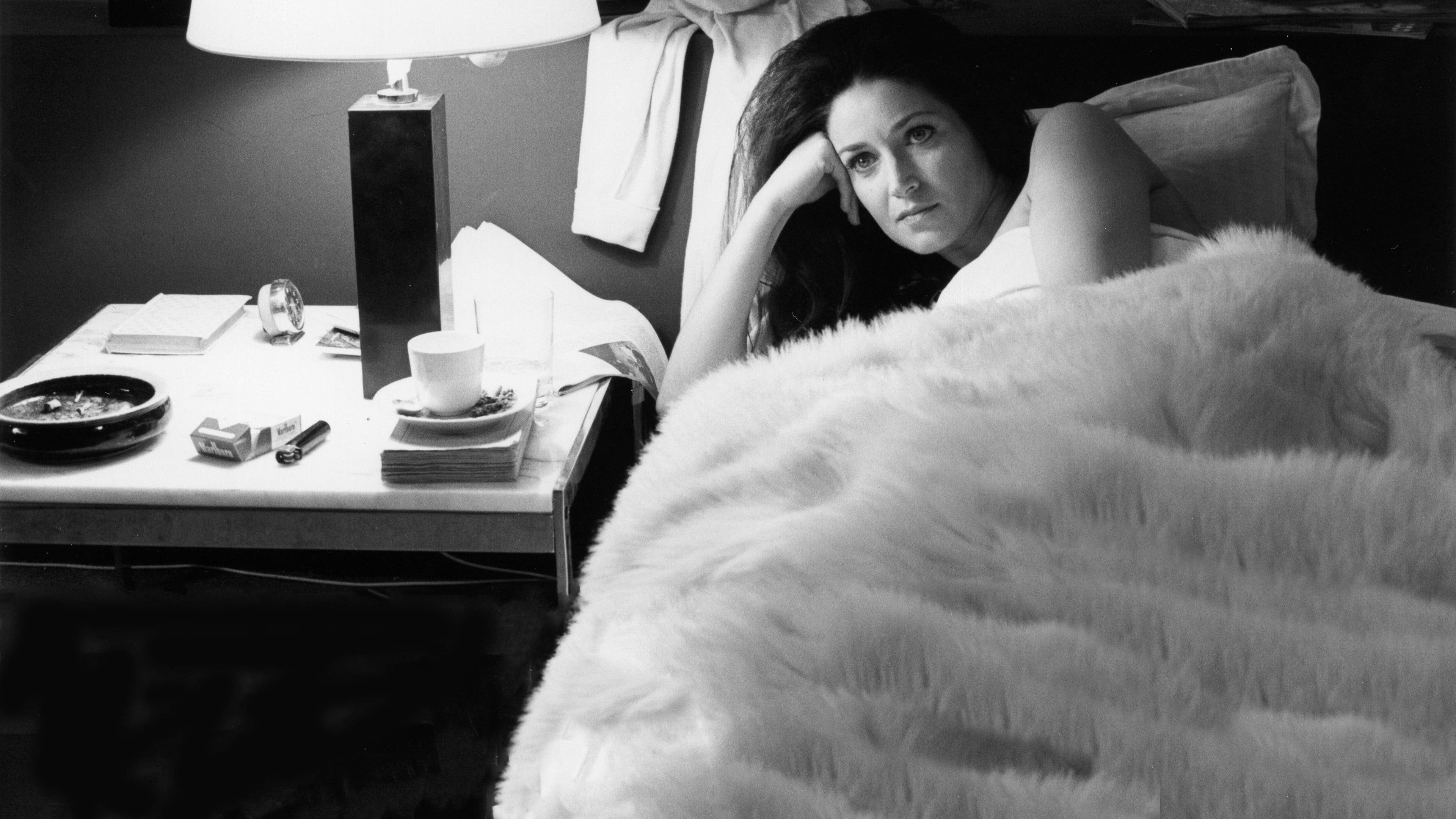
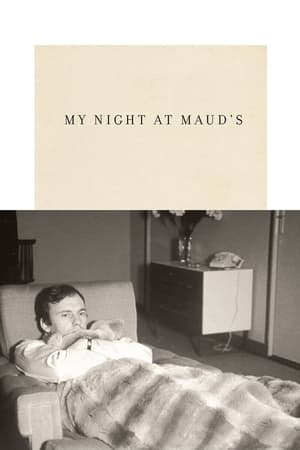
My Night at Maud's
1969 • 1h 50min • ★ 7.72/10 • France
Directed by: Éric Rohmer
Cast: Jean-Louis Trintignant, Françoise Fabian, Marie-Christine Barrault, Antoine Vitez, Léonide Kogan
The Catholic Jean-Louis runs into an old friend, the Marxist Vidal, in Clermont-Ferrand around Christmas. Vidal introduces Jean-Louis to the modestly libertine, recently divorced Maud and the three engage in conversation on religion, atheism, love, morality and Blaise Pascal's life and writings on philosophy, faith and mathematics. Jean-Louis ends up spending a night at Maud's. Jean-Louis' Catholic views on marriage, fidelity and obligation make his situation a dilemma, as he has already, at the very beginning of the film, proclaimed his love for a young woman whom, however, he has never yet spoken to.
Ma nuit chez Maud is a masterpiece of French cinema, directed by Eric Rohmer.
The film follows the story of Jean-Louis, a devout Catholic who becomes entangled in a love triangle with two women – the seductive Maud and the innocent Françoise.
The film is a deeply philosophical exploration of the themes of faith, morality, and human nature.
The dialogue is sharp, witty, and intellectually stimulating, with the characters engaging in thought-provoking debates about religion, love, and the meaning of life.
The cinematography is stunning, with beautiful shots of the French countryside and the elegant interiors of Maud’s home.
The performances are superb, with Jean-Louis Trintignant delivering a nuanced and complex portrayal of a man torn between his beliefs and his desires.
- English (Subtitle)
- French (Publication Language)
- Audience Rating: Unrated (Not Rated)
Zazie dans le métro (1960)
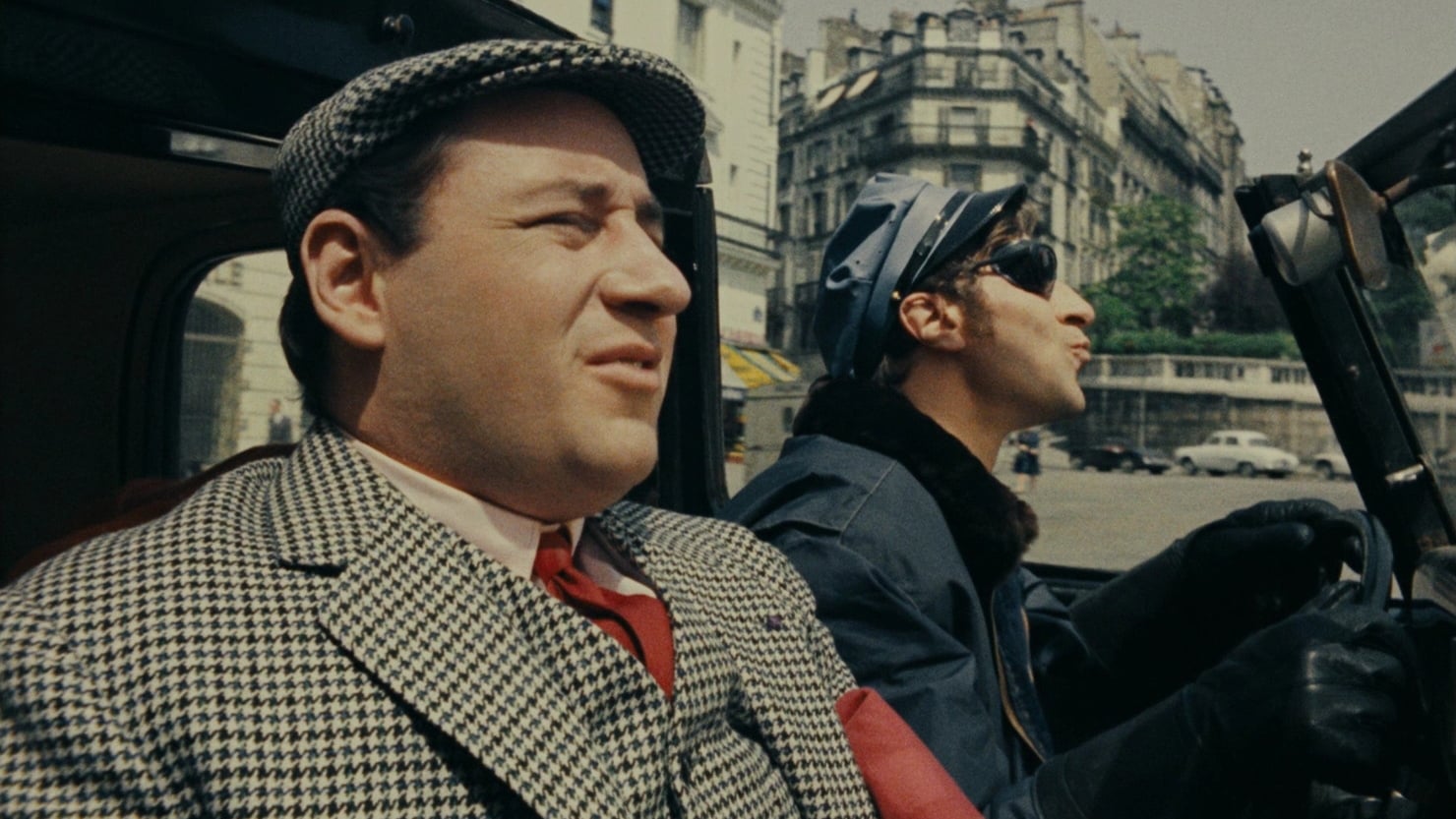
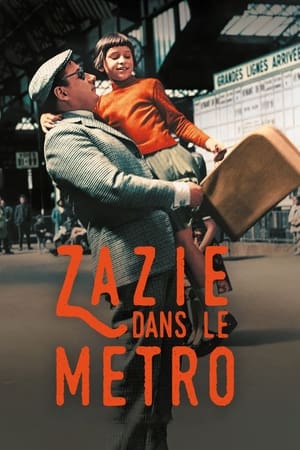
Zazie dans le Métro
Liberté... Insanité... Hilarité!
1960 • 1h 33min • ★ 6.616/10 • France
Directed by: Louis Malle
Cast: Catherine Demongeot, Philippe Noiret, Hubert Deschamps, Carla Marlier, Annie Fratellini
A brash and precocious ten-year-old comes to Paris for a whirlwind weekend with her rakish uncle.
Zazie dans le métro is a quirky and adventurous film that takes the viewer on a wild ride through the streets of Paris.
The film follows the misadventures of young Zazie, played brilliantly by Catherine Demongeot, as she explores the city and interacts with its eccentric inhabitants.
Louis Malle infuses the film with a playful and surreal energy, making it an absolute joy to watch.
The film features a unique blend of live-action and animation, creating a dreamlike atmosphere that perfectly captures the whimsy of the story.
The characters are all delightfully offbeat, from Zazie’s flamboyant uncle Gabriel to the mysterious and enigmatic Trouscaillon.
Each scene is filled with unexpected twists and turns, making for a truly unpredictable viewing experience.
Zazie dans le métro is a charming and inventive film that is sure to delight anyone looking for something a little different.
With its vibrant visuals, memorable characters, and playful sense of humor, it’s a true cinematic gem that deserves to be seen by all. Highly recommended!
- Zazie dans le mÃtro (Criterion Collection) - DVD Used Like New
- Catherine Demongeot, Philippe Noiret, Hubert Deschamps (Actors)
- Louis Malle (Director)
- English (Subtitle)
- English (Publication Language)
Les demoiselles de Rochefort (1967)
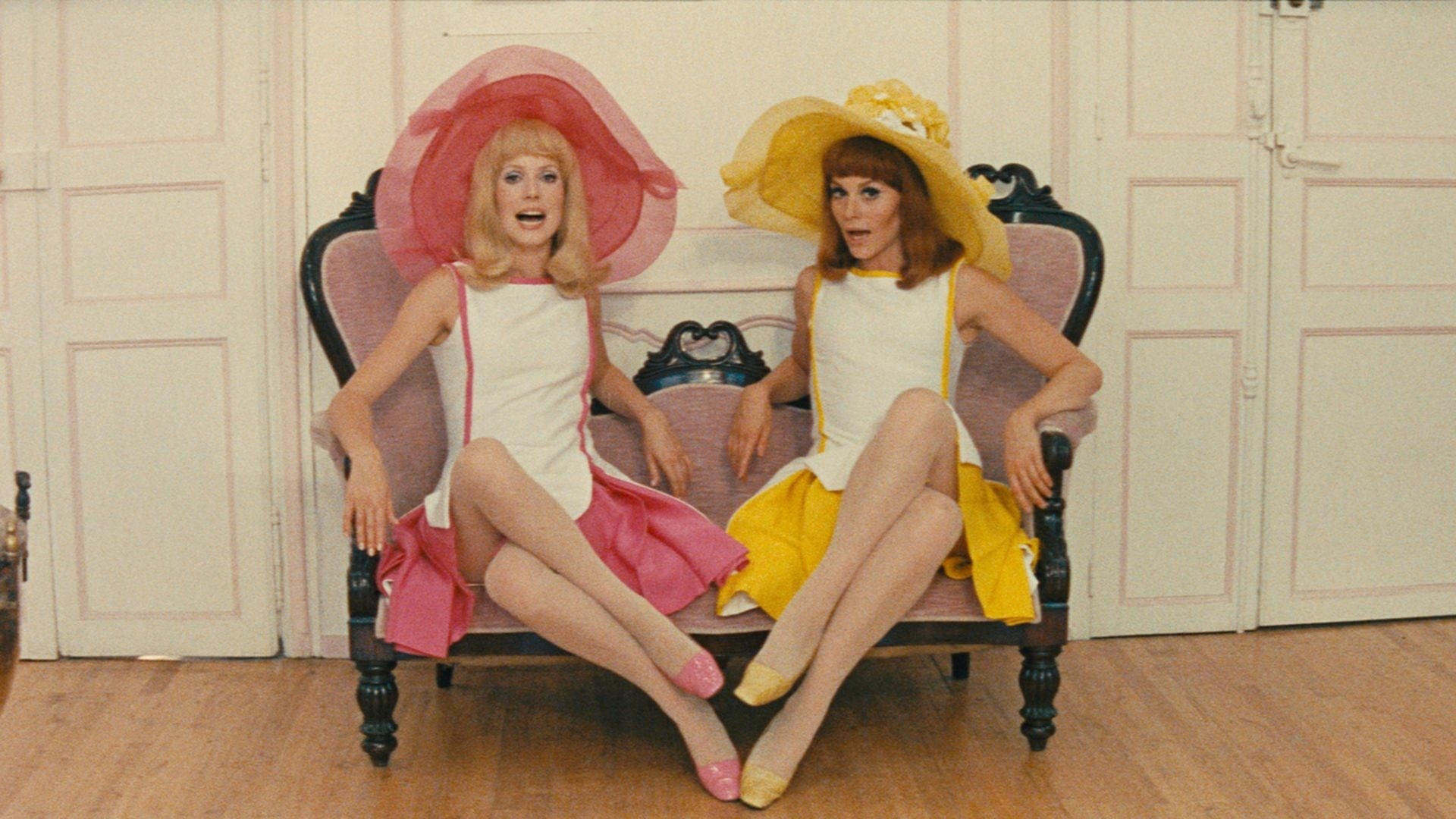
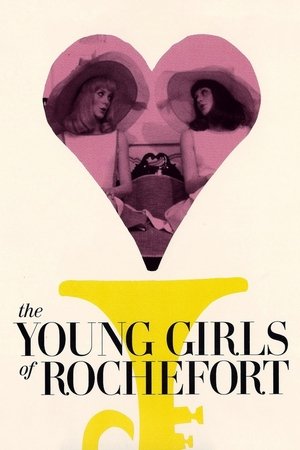
The Young Girls of Rochefort
…They're singing and dancing in the streets.
1967 • 2h 6min • ★ 7.676/10 • France
Directed by: Jacques Demy
Cast: Catherine Deneuve, Françoise Dorléac, Jacques Perrin, Gene Kelly, Danielle Darrieux
Delphine and Solange are two sisters living in Rochefort. Delphine is a dancing teacher and Solange composes and teaches the piano. Maxence is a poet and a painter. He is doing his military service. Simon owns a music shop, he left Paris one month ago to come back where he fell in love 10 years ago. They are looking for love, looking for each other, without being aware that their ideal partner is very close...
Les demoiselles de Rochefort is a vibrant, colorful, and musical treat that will leave you tapping your toes and humming along to its catchy tunes.
Directed by Jacques Demy, this French film is a beautiful ode to the golden age of Hollywood musicals with a French twist.
The film tells the story of twin sisters, Delphine and Solange, who dream of finding true love and leaving their small town of Rochefort.
As they navigate their romantic pursuits, we are introduced to a colorful cast of characters, including a sailor seeking his lost love and a painter looking for inspiration.
The performances by Catherine Deneuve and Françoise Dorléac as the twin sisters are enchanting and their vocals are simply mesmerizing.
The supporting cast, including Gene Kelly and George Chakiris, add to the film’s charm and nostalgia.
But what truly sets Les demoiselles de Rochefort apart is its stunning visuals. The colors pop off the screen, from the vibrant umbrellas in the opening number to the colorful costumes worn by the characters.
The choreography is also a standout, with the dance numbers perfectly capturing the exuberance and joy of the musical genre.
https://www.youtube.com/watch?v=bbfhF4HG6Lc
- Amazon Prime Video (Video on Demand)
- Catherine Deneuve, Françoise Dorléac, Jacques Perrin (Actors)
- Jacques Demy (Director) - Jacques Demy (Writer) - Mag Bodard (Producer)
- (Playback Language)
- Audience Rating: G (General Audience)
Le beau Serge and Les cousins (1959)
No poster available
Le beau Serge and Les cousins are two of the most iconic films of French New Wave cinema, both directed by the legendary filmmaker Claude Chabrol.
These films are often considered as two sides of the same coin, exploring the themes of friendship, jealousy, and morality in different ways.
Le beau Serge follows the story of Francois (Jean-Claude Brialy), who returns to his hometown after many years to visit his childhood friend Serge (Gerard Blain).
The film explores the themes of guilt and redemption, as Francois tries to help Serge overcome his alcoholism and depression. The cinematography is beautiful, capturing the stunning landscapes of rural France with a sense of realism and authenticity.
The performances are outstanding, with Brialy and Blain delivering powerful and nuanced performances that make the characters feel real and relatable.
- Factory sealed DVD
- Gerard Blain, Jean-Claude Brialy, Juliette Mayniel (Actors)
- Claude Chabrol (Director)
- English (Subtitle)
- English (Publication Language)
The Umbrellas of Cherbourg (1964)
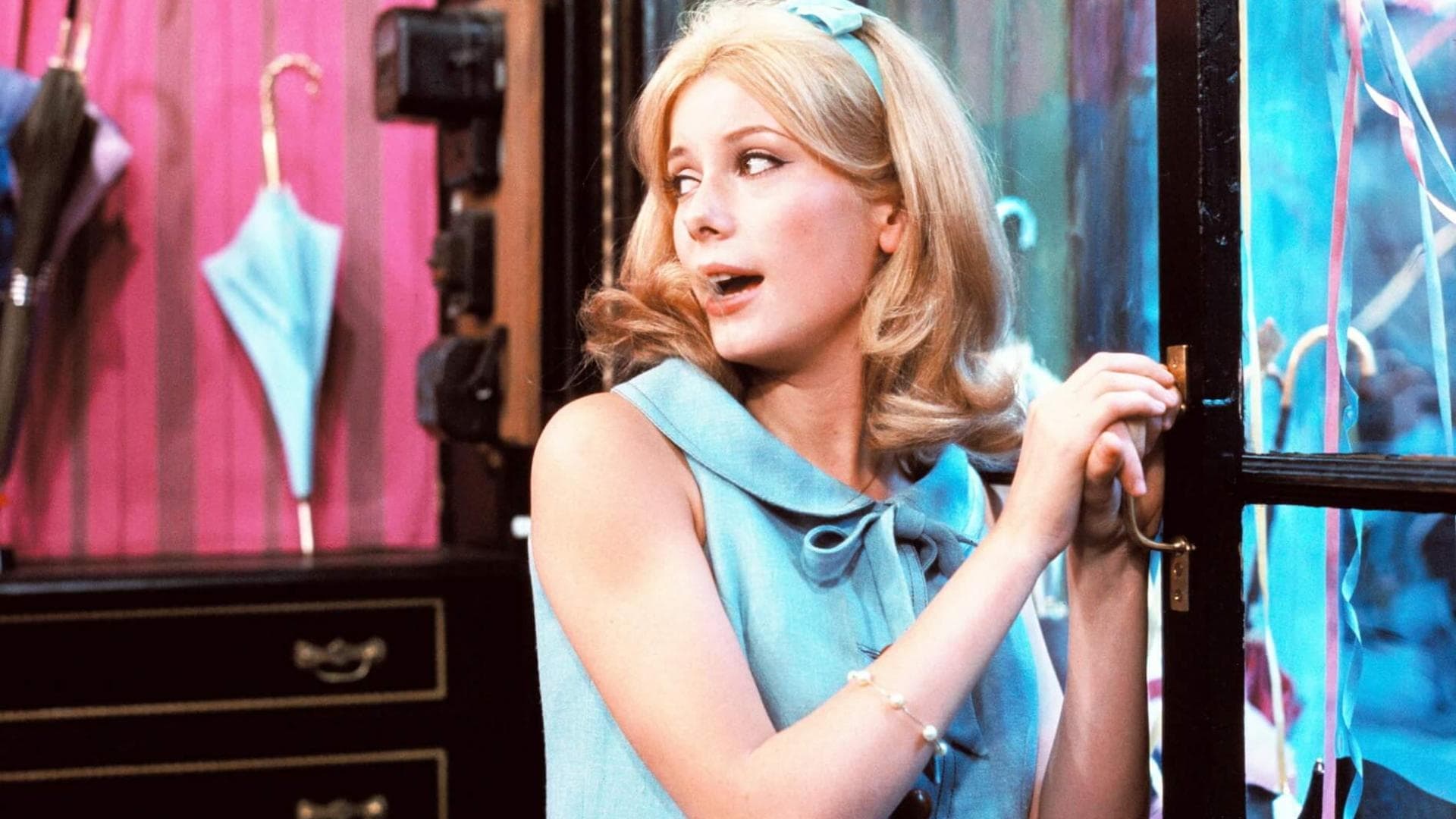
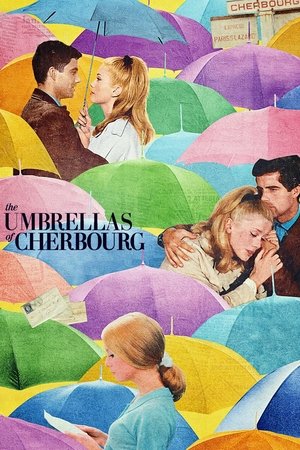
The Umbrellas of Cherbourg
A film for all the young lovers of the world.
1964 • 1h 32min • ★ 7.387/10 • France
Directed by: Jacques Demy
Cast: Catherine Deneuve, Nino Castelnuovo, Anne Vernon, Mireille Perrey, Marc Michel
This simple romantic tragedy begins in 1957. Guy Foucher, a 20-year-old French auto mechanic, has fallen in love with 17-year-old Geneviève Emery, an employee in her widowed mother's chic but financially embattled umbrella shop. On the evening before Guy is to leave for a two-year tour of combat in Algeria, he and Geneviève make love. She becomes pregnant and must choose between waiting for Guy's return or accepting an offer of marriage from a wealthy diamond merchant.
The Umbrellas of Cherbourg (1964) is a stunning French musical that tells the story of Geneviève and Guy, two young lovers who are separated by circumstances beyond their control.
The film is a feast for the eyes, with its vibrant colors, beautiful costumes, and intricate set designs capturing the essence of 1960s France.
What sets this film apart from other musicals is its unconventional approach to storytelling. Instead of breaking into song and dance at random intervals, every line of dialogue is sung, creating a seamless and immersive experience.
The music, composed by Michel Legrand, is simply gorgeous, with each melody perfectly capturing the emotions of the characters.
The performances in The Umbrellas of Cherbourg are equally impressive. Catherine Deneuve, in her breakout role, is radiant as Geneviève, bringing a sense of innocence and vulnerability to the role.
Nino Castelnuovo, as Guy, is equally compelling, delivering a performance that is both charming and heartbreaking.
At its heart, The Umbrellas of Cherbourg is a story about the power of love and the sacrifices we make for those we care about.
It’s a film that will leave you feeling both elated and emotionally drained, and one that will stay with you long after the credits have rolled.
The Umbrellas of Cherbourg is a masterpiece of French cinema, and a must-see for fans of musicals and romance alike.
It’s a film that will transport you to another time and place, and leave you with a renewed appreciation for the beauty of love and the human spirit.
- Catherine Deneuve, Nino Castelnuovo (Actors)
- Jacques Demy (Director)
- English (Subtitle)
- Audience Rating: NR (Not Rated)
Paris nous appartient (1960)
No poster available
Paris nous appartient is a cinematic masterpiece that is sure to captivate and intrigue audiences.
This film, directed by Jacques Rivette, tells the story of a young woman named Anne who becomes enmeshed in a group of bohemian artists and intellectuals in Paris.
The film is shot in black and white, which adds to its overall sense of nostalgia and melancholy.
The cinematography is breathtaking, with long takes that allow the viewer to fully immerse themselves in the world of the film.
One of the standout features of Paris nous appartient is its complex and layered narrative. The film weaves together multiple storylines, each one adding a new dimension to the overall plot.
Rivette expertly navigates these multiple threads, creating a film that is both intellectually stimulating and emotionally resonant.
The performances in Paris nous appartient are outstanding, particularly that of lead actress Betty Schneider.
Schneider captures the uncertainty and vulnerability of her character perfectly, allowing us to empathize with her as she navigates the complex world of the film.
Rivette’s direction, the beautiful cinematography, and the outstanding performances all come together to create a film that is both thought-provoking and emotionally resonant.
- Paris Belongs To Us (Criterion Collection) - Blu-ray Used Like New
- Betty Schneider, Jean-Claude Brialy (Actors)
- Jacques Rivette (Director)
- English (Subtitle)
- Audience Rating: NR (Not Rated)
Tirez sur le pianiste (1960)
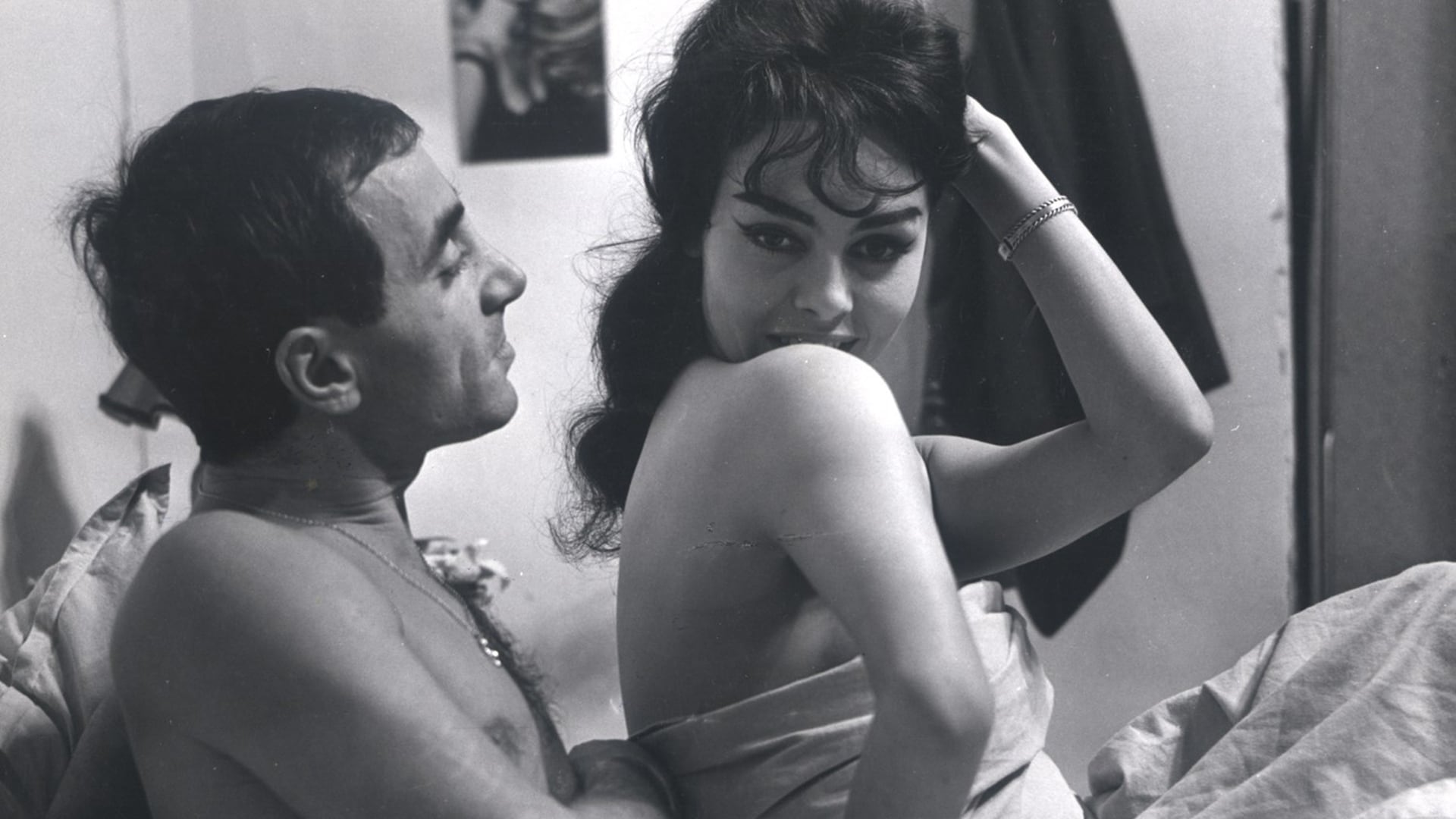
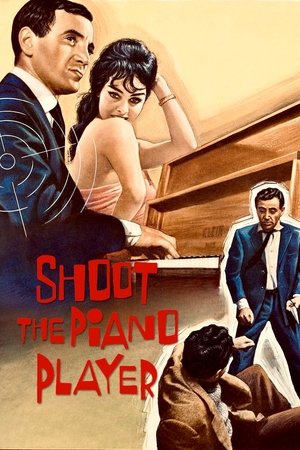
Shoot the Piano Player
François Truffaut, Brilliant Director Who Gave You the Award Winning "The 400 Blows", Now Brings to the Screen a Fascinating New Work That Plays in Many Keys...All of Them Delightful!
1960 • 1h 25min • ★ 7.2/10 • France
Directed by: François Truffaut
Cast: Charles Aznavour, Marie Dubois, Nicole Berger, Michèle Mercier, Serge Davri
Charlie is a former classical pianist who has changed his name and now plays jazz in a grimy Paris bar. When Charlie's brothers, Richard and Chico, surface and ask for Charlie's help while on the run from gangsters they have scammed, he aids their escape. Soon Charlie and Lena, a waitress at the same bar, face trouble when the gangsters arrive, looking for his brothers.
Tirez sur le pianiste (Shoot the Piano Player) is a classic French New Wave film by Francois Truffaut.
The film follows a former concert pianist named Charlie Kohler, who now plays in a dingy bar under the alias Edouard Saroyan.
When his troubled past catches up with him, Charlie must navigate dangerous relationships and unexpected twists.
Truffaut’s direction is masterful, with a combination of long takes and jump cuts that keep the audience engaged and guessing.
The film’s black and white cinematography adds to the gritty and moody atmosphere, perfectly capturing the Parisian streets of the 1960s.
The performances are outstanding, with Charles Aznavour giving a nuanced and subtle portrayal of Charlie.
His interactions with the various characters in the film are both touching and tragic, as he struggles to come to terms with his past and present.
Last Year At Marienbad (1961)
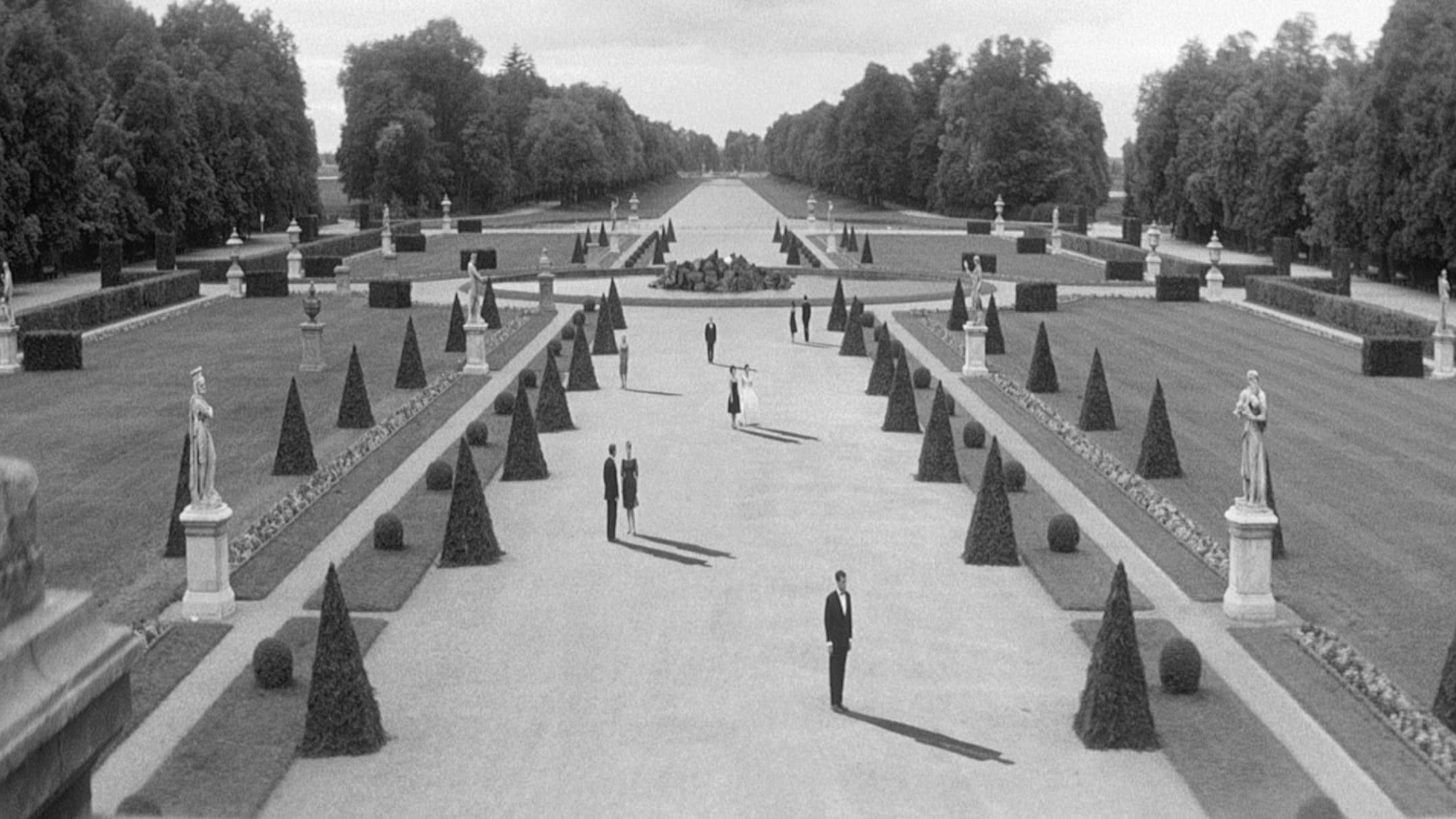
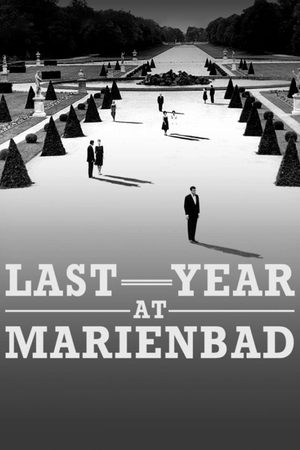
Last Year at Marienbad
Extraordinary! Hypnotic! Beautiful! Masterful!
1961 • 1h 35min • ★ 7.4/10 • France
Directed by: Alain Resnais
Cast: Delphine Seyrig, Giorgio Albertazzi, Sacha Pitoëff, Françoise Bertin, Luce Garcia-Ville
In a strange and isolated chateau, a man becomes acquainted with a woman and insists that they have met before.
Last Year At Marienbad is a stunning, enigmatic film that will leave you questioning reality long after the credits roll.
Directed by Alain Resnais and written by Alain Robbe-Grillet, this French New Wave classic is a
The film tells the story of a man (Giorgio Albertazzi) who meets a woman (Delphine Seyrig) at a lavish hotel.
The man claims they met the previous year at Marienbad and had a romantic encounter, but the woman insists they have never met before.
As the film progresses, the lines between reality and fantasy blur, and the audience is left to decipher what is real and what is a figment of the characters’ imaginations.
Resnais’ direction is mesmerizing, with long tracking shots and abstract imagery that create a dreamlike atmosphere.
Seyrig delivers a captivating performance as the mysterious woman, while Albertazzi’s portrayal of the persistent man is both charming and unsettling.
Last Year At Marienbad is not a film for everyone. Its nonlinear structure and obscure symbolism may frustrate some viewers, but for those who are willing to dive into its intricate web of interpretations, it is a rewarding and unforgettable experience.
This is a film that will haunt you long after you’ve watched it, and it is a testament to the power of cinema to challenge our perceptions of reality.
- Shrink-wrapped
- Delphine Seyrig, Giorgio Albertazzi (Actors)
- Alain Resnais (Director)
- English (Subtitle)
- Audience Rating: NR (Not Rated)
La jetée (1962)
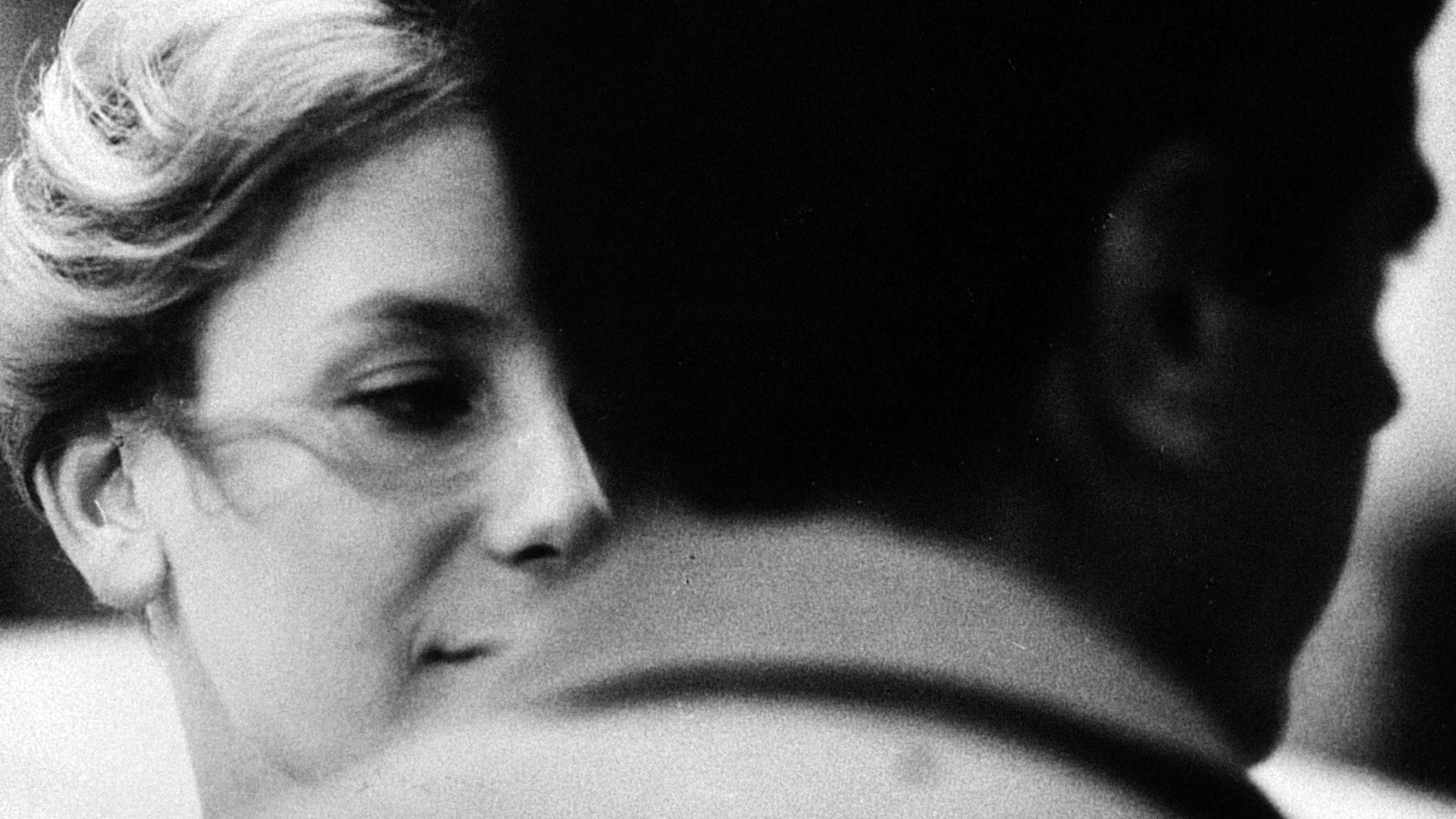

La Jetée
A man's obsession with an image of his past
1962 • 0h 29min • ★ 7.9/10 • France
Directed by: Chris Marker
Cast: Jean Négroni, Hélène Chatelain, Davos Hanich, Jacques Ledoux, André Heinrich
A man confronts his past during an experiment that attempts to find a solution to the problems of a post-apocalyptic world caused by a world war.
La Jetée is a haunting and poetic exploration of time, memory, and the human condition.
Comprised almost entirely of still photographs, this experimental French film tells the story of a man who is sent back in time to find a solution to a post-apocalyptic world.
Chris Marker masterfully uses the still images to create a sense of otherworldliness and surrealism, while also conveying a sense of intimacy and emotional depth.
The black and white photography is stark and beautiful, capturing the essence of the film’s themes with a quiet power.
What makes La Jetée truly remarkable is its ability to evoke a range of emotions and ideas with such a simple and minimalist approach.
From the tender love story at its core to the existential questions it poses about the nature of existence, the film packs a powerful punch in its brief 28-minute runtime.
La Jetée is a cinematic gem that is both haunting and profound. Its unique form and poetic sensibility make it a must-see for anyone interested in experimental film or the art of storytelling.
- Factory sealed DVD
- Étienne Becker, Jean Négroni, Hélène Chatelain (Actors)
- Chris Marker (Director) - Anatole Dauman (Producer)
- English (Subtitle)
- English (Publication Language)
How Did The French New Wave Movement Originate?
The new wave filmmakers were doing something different than what had been done before them; they wanted to show real life on screen rather than romanticized images or happy endings.
They wanted to create realistic films that depicted everyday life in France which differed from Hollywood’s glamorous portrayal of America.
Along with their contemporaries, they also wanted to update filmmaking techniques so they could shoot on location instead of using studio sets.
The New Wave movement began when critic Andre Bazin published an article entitled ‘The Evolution Of Cinema’ in 1952 which called for filmmakers to break away from tradition and create more modernistic films like those being produced in Italy at the time.
How The French New Wave Changed Film History Forever
In the decades following World War II, European filmmakers and thinkers sought to shake up traditional filmmaking.
These directors were pushing against what they saw as conservative filmmaking traditions which favored actors overstory and embraced escapism from reality.
They wanted their audience members to be more engaged in the world they were watching on screen rather than passively watching like an outsider looking in.
What was once a small movement of artists and filmmakers in France became one of the most influential movements in cinema, through their films, they pushed boundaries on the cinematic form with techniques such as jump cuts and handheld camera shots to create an immediacy that had not been seen before.
They also introduced more complex narratives including themes of existentialism and rebellion against bourgeois institutions which were largely untouched by Hollywood at the time.
The legacy of this movement is still felt today in how we make movies across all genres from horror to animated features.
The filmmakers at this time were considered radicals for their abandoning of traditional cinematic conventions like editing, character development, plot, scripted dialogues, and other elements that had been central to filmmaking since the beginning.
Many believe these changes have revolutionized cinematography forever.
Ready to learn about more Film History & Film Movements?



![Breathless (The Criterion Collection) [Blu-ray]](https://m.media-amazon.com/images/I/51cx3fpRWzL.jpg)

![Jules and Jim (The Criterion Collection) [Blu-ray + DVD]](https://m.media-amazon.com/images/I/41orL6UqiIL.jpg)
![Pierrot le fou (The Criterion Collection) [Blu-ray]](https://m.media-amazon.com/images/I/41BHZQFcZDL.jpg)

![Contempt (Le Mépris) [Blu-ray]](https://m.media-amazon.com/images/I/51YyFMR53mL.jpg)
![Hiroshima mon amour [Blu-ray]](https://m.media-amazon.com/images/I/6154IbvY6uL.jpg)

![Cleo from 5 to 7 (The Criterion Collection) [DVD]](https://m.media-amazon.com/images/I/41Q5CCB48JL.jpg)
![La Collectionneuse [ NON-USA FORMAT, PAL, Reg.2 Import - France ]](https://m.media-amazon.com/images/I/41qbAqEyM7L.jpg)
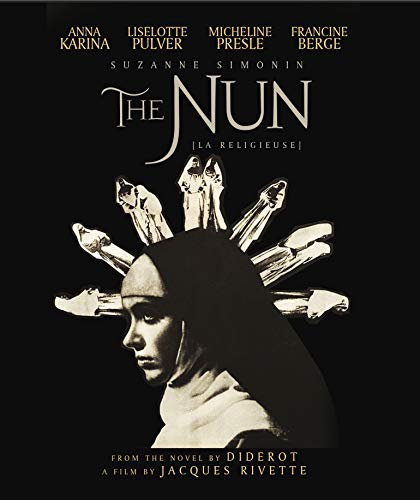

![Le Bonheur [DVD]](https://m.media-amazon.com/images/I/516teGgsz4L.jpg)
![My Night with Maud ( Ma nuit chez Maud ) ( Six Moral Tales III: My Night at Maud's ) (Blu-Ray & DVD Combo) [ NON-USA FORMAT, Blu-Ray, Reg.B Import - France ]](https://m.media-amazon.com/images/I/5174tzCnnEL.jpg)
![Zazie dans le métro (The Criterion Collection) [DVD]](https://m.media-amazon.com/images/I/41gitwgZoSL.jpg)

![Les cousins (The Criterion Collection) [Blu-ray]](https://m.media-amazon.com/images/I/416kpofcMBL.jpg)
![The Umbrellas of Cherbourg (The Criterion Collection) [Blu-ray]](https://m.media-amazon.com/images/I/515Qo1Y6htL.jpg)
![Paris Belongs to Us (The Criterion Collection) [Blu-ray]](https://m.media-amazon.com/images/I/41ojRnfa9KL.jpg)

![Last Year at Marienbad [Blu-ray]](https://m.media-amazon.com/images/I/51bLKIR7kNL.jpg)
![La Jetee / Sans Solei (The Criteiron Collection) [Blu-ray]](https://m.media-amazon.com/images/I/51pe9Bpfp3L.jpg)
